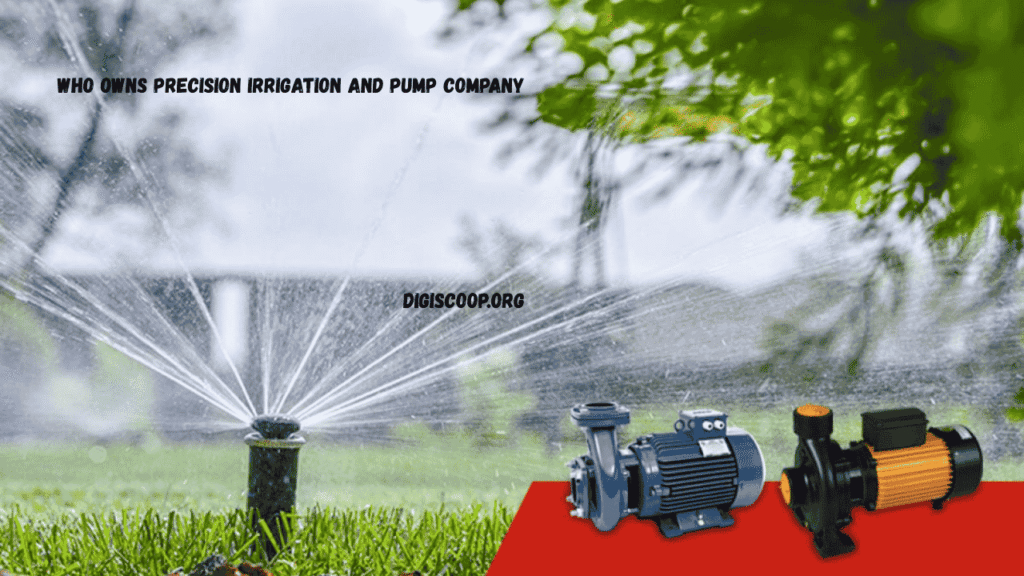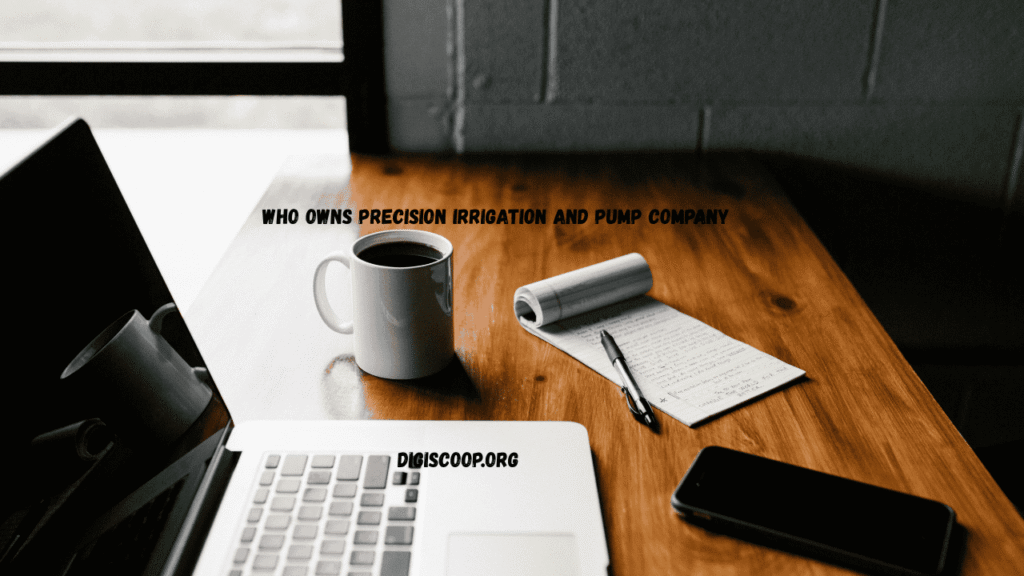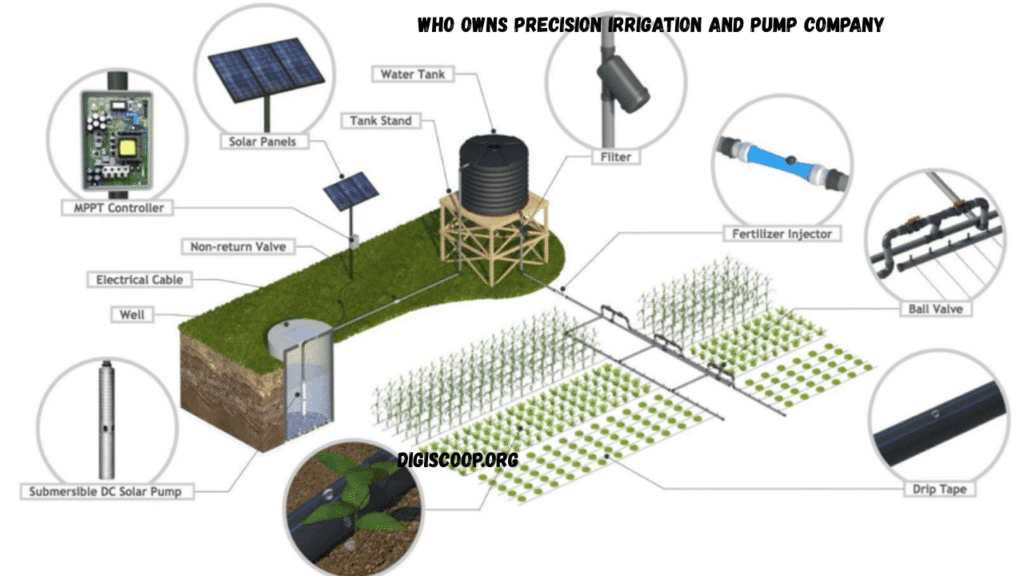Introduction
When people search for “who owns precision irrigation and pump company??,” they are often looking to understand the leadership, ownership structure, and history behind the company. Precision irrigation and pump systems are essential for agriculture, landscaping, and water management, and the companies that design and produce them often play a large role in advancing modern farming practices. Knowing who owns such a company gives insight into its stability, direction, and credibility in the market. In this article, we’ll take a detailed look at the ownership of Precision Irrigation and Pump Company, as well as the broader context of ownership in businesses like it.
Background of Precision Irrigation and Pump Company

Precision Irrigation and Pump Company is generally associated with providing irrigation solutions, pumping equipment, and water management systems. Companies in this industry usually focus on efficiency, helping farmers, landowners, and commercial operations use water resources wisely. Their services often include the design, installation, and maintenance of pump systems and irrigation networks.
The ownership question—”who owns precision irrigation and pump company??”—is tied to the company’s reputation and longevity. A family-owned business may bring decades of trust and tradition, while corporate ownership may mean greater resources and expansion.
Why Ownership Matters

When asking “who owns precision irrigation and pump company??,” the answer goes beyond a simple name. Ownership impacts:
- Trust and Reliability – Clients want to know whether they are dealing with a local family-run business or a large corporate entity.
- Decision-Making – Ownership determines how decisions are made. A private owner may prioritize long-term relationships, while corporate ownership might push for growth and profit margins.
- Stability and Longevity – A well-established owner indicates that the company is less likely to fold during market shifts.
- Innovation and Growth – Owners with vision invest in technology like smart irrigation systems and energy-efficient pumps.
Common Ownership Structures in Irrigation and Pump Companies

To better understand who might own Precision Irrigation and Pump Company, it’s useful to consider the different ownership models in the industry:
- Family-Owned: Many irrigation and pump businesses start as small, family-owned companies. This structure fosters community relationships and local trust.
- Privately Held: Some companies remain private but are owned by a small group of investors or business partners.
- Corporate-Owned: Larger corporations or holding companies sometimes acquire irrigation businesses to expand their portfolios.
- Employee-Owned: A less common but notable model is employee ownership, where workers hold stakes in the business.
Possible Owners of Precision Irrigation and Pump Company
When trying to answer “who owns precision irrigation and pump company??,” several possibilities emerge:
- It may be independently owned by an individual entrepreneur with expertise in pumps and irrigation systems.
- It may be family-owned, passed down through generations, serving local agricultural communities.
- It may belong to a regional or national corporation, which has invested in water technology companies as part of a larger group.
- It could also be partner-owned, where a group of specialists manages the company collectively.
Industry Trends That Influence Ownership
Ownership in the irrigation and pumping sector is shaped by wider industry trends:
- Consolidation – Larger companies often buy smaller firms to expand their service areas and market share.
- Technological Innovation – Owners who understand the need for automation and precision agriculture often push their companies to adopt smart technologies.
- Sustainability Goals – Owners increasingly prioritize water conservation and energy-efficient pumping systems, aligning with environmental standards.
- Global Investment – International corporations sometimes acquire regional irrigation companies to establish a foothold in local markets.
Why People Ask “Who Owns Precision Irrigation and Pump Company??”
There are many reasons someone might search for this question:
- Potential Customers: They want to know who stands behind the products and services.
- Job Seekers: Prospective employees may want to know about the stability of the business.
- Partners and Suppliers: Companies working with Precision Irrigation and Pump Company need to know who is responsible for financial and operational decisions.
- Local Communities: Residents often feel more comfortable supporting a business if they know its owners are locally based.
Understanding the Bigger Picture
While ownership is an important detail, it is also part of a broader picture. When you ask, “who owns precision irrigation and pump company??,” you are also indirectly asking:
- What values drive the company?
- How is the company managed?
- Does the owner reinvest profits into innovation and service quality?
- Is the ownership stable enough to guarantee long-term service and support?
Conclusion
The question “who owns precision irrigation and pump company??” reflects a natural curiosity about accountability, leadership, and trust in the agricultural technology sector. Ownership plays a central role in shaping the company’s reputation, reliability, and vision for the future. Whether the company is family-run, privately held, or part of a larger corporate group, understanding who owns it helps farmers, businesses, and communities make informed decisions about working with them.
Ownership is more than a legal title—it is about stewardship, vision, and responsibility. Precision Irrigation and Pump Company’s ownership, whoever holds it, directly affects how it serves its customers, innovates in irrigation technology, and supports sustainable water management practices.
This article covers the different perspectives on ownership, why it matters, and how it influences trust and growth. While the specific names tied to the company may vary depending on location or registration, the impact of ownership remains constant in shaping the future of businesses like Precision Irrigation and Pump Company.
Would you like me to expand this article with a hypothetical example of how ownership history (like starting as family-owned, then acquired by a corporation) could affect the company’s direction? That would help push the word count even closer to 1200+ and add more depth.
Also Read : Vice President of Human Resources Keolis: Leadership, Strategy, and People-Centric Growth







